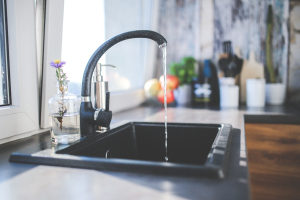 A U.S. appellate panel ruled on December 16 to uphold a court order stating that the State of Michigan is required to deliver either bottled water or provide a mechanism for home filtration for any qualifying residents in and around the Flint area. Over the past year, lead contamination in the region’s tap water has dominated headlines and sparked outrage from citizens.
A U.S. appellate panel ruled on December 16 to uphold a court order stating that the State of Michigan is required to deliver either bottled water or provide a mechanism for home filtration for any qualifying residents in and around the Flint area. Over the past year, lead contamination in the region’s tap water has dominated headlines and sparked outrage from citizens.
The State of Michigan has argued against the court’s earlier ruling, contending that the requirements are too costly and are therefore unreasonable. The ruling dictates that all qualifying households are to receive door to door deliveries of bottled water; however, the state countered that the operation of bottled water distribution sites operated by the government should be sufficient. Furthermore, the state of Michigan projected that the cost for home deliveries would cost approximately $10 million per month, a projection disputed by the court. The appeals court responded to the cost projection as “disingenuous.”
The 2-1 ruling by the U.S. 6th Circuit Court of Appeals marks the third decision by a federal court mandating the water deliveries, originally imposed on Nov. 10 by U.S. District Judge David Lawson.
Lawson’s court order mandated that government officials at the state and local level must provide either an in-home filtration system (if one is not already present) or deliver four cases of bottled water per household per week in the qualifying areas. Residents may also opt out if they wish.
Michigan’s governor, Rick Snyder, released a statement claiming that bottled water deliveries had already been in place for months to residents actively requesting it and that to furnish additional to households unnecessarily would place a significant cost burden on the state, effectively reducing “the progress made in the city’s recovery”.
The contaminated water crisis in Flint and the surrounding areas has been considered a public health crisis since last year, following the release of test data showing abnormally high levels of lead in area children’s blood samples. Since that time, actions have been taken by city and state government officials to correct the problem, but the water is still not considered safe for drinking without additional home filtration.
Circuit judges Damon Keith and Bernice Donald, in a written opinion, stated that “Flint residents continue to suffer irreparable harm from the lack of reliable access to safe drinking water.”